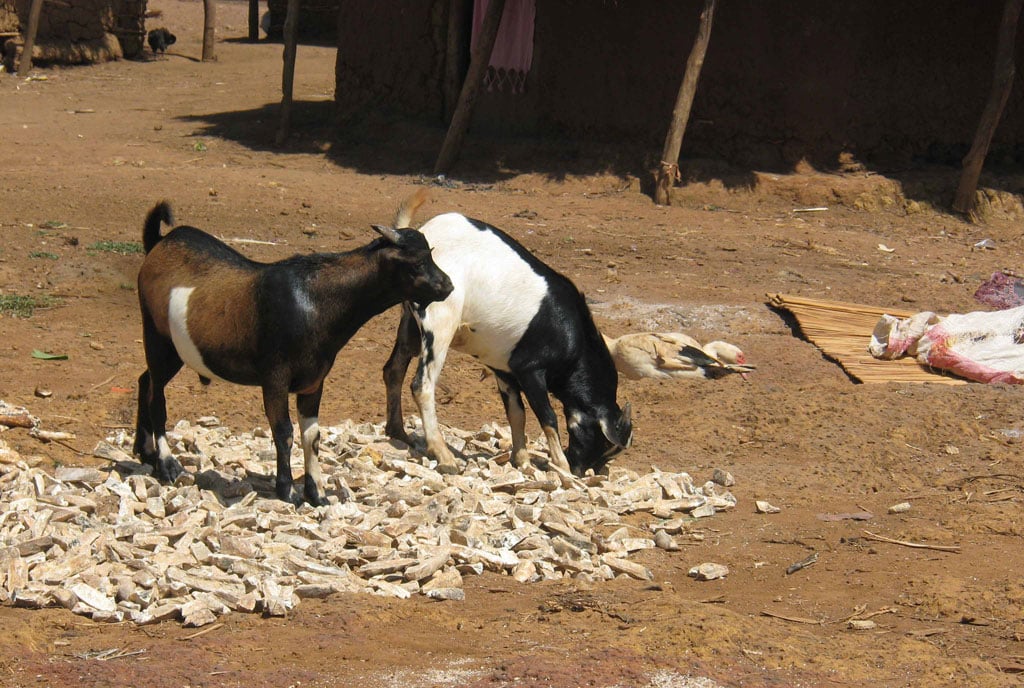FAO, AfDB boost East Africa’s food safety

Goats walking over cassava drying in the yard may contaminate the cassava with goats’ droppings. PHOTO/MICHAEL J SSALI
What you need to know:
- The importance of this initiative lies in the considerable economic impact of food safety issues.
In a bid to improve food safety and promote regional trade, the African Development Bank (AfDB) and the Food and Agricultural Organisation (FAO) of the United Nations have launched a two-year project aimed at strengthening food safety standards across East Africa.
The initiative will involve Kenya, Rwanda, South Sudan, Tanzania, and Uganda.
The project, titled Regional Strengthening of Food Safety Standards for Trade and Public Health Promotion, seeks to address pressing food safety challenges and eliminate non-tariff barriers that hamper regional trade.
According to FAO Sub-regional Coordinator for Eastern Africa, Farayi Zimudzi, “unsafe food is a threat to human health and economies, disproportionately affecting vulnerable populations, especially women and children.”
Ms Zimudzi highlighted that food-borne diseases cause significant health and economic burdens in Africa, with an estimated 91 million illnesses and 137,000 deaths annually.
The importance of this initiative lies in the considerable economic impact of food safety issues. The World Bank estimates that unsafe food costs developing countries around $110 billion annually in lost productivity and medical expenses, with Africa alone shouldering an estimated $16.7 billion. The new project aims to strengthen national food safety authorities' capacity for systematic monitoring of food quality and standards, promote regional food safety protocols, and enhance the competitiveness of small and medium-sized enterprises (MSMEs).
“The project will contribute to the reduction of non-tariff barriers related to sanitary and phytosanitary measures, thus effectively facilitating trade in the region,” said Ms Zimudzi.
In Uganda, the government has been proactive in addressing food safety through its National Development Plan IV (NDP IV), but plans to set up a comprehensive body to handle food safety are still underway.
Dr Patience Rwamigisa from the Ministry of Agriculture, Animal Industry, and Fisheries emphasised the strategic focus on improving food safety standards.
“The NDP IV strategy includes key actions to ensure the safety and standards of Uganda’s food systems, such as investing in post-harvest handling and improving access to quality seeds and veterinary drugs,” Rwamigisa noted.
Prof Martin Kimanya, programme adviser at the East African Community (EAC), expressed gratitude to AfDB and FAO, acknowledging their roles in shaping the project. “The project confirms the importance of strengthening EAC partner states’ food regulatory systems and promoting competitiveness in agribusiness, especially for MSMEs.”
With the prospect of establishing the Food and Agricultural Regulatory Authority in Uganda, the project aligns with broader regional efforts to enhance food safety. Uganda has in the past faced woes, with her produce rejected by neighbours citing high levels of aflatoxin and other safety concerns amounting to a loss of an estimated $577m (Shs2.12 trillion)



